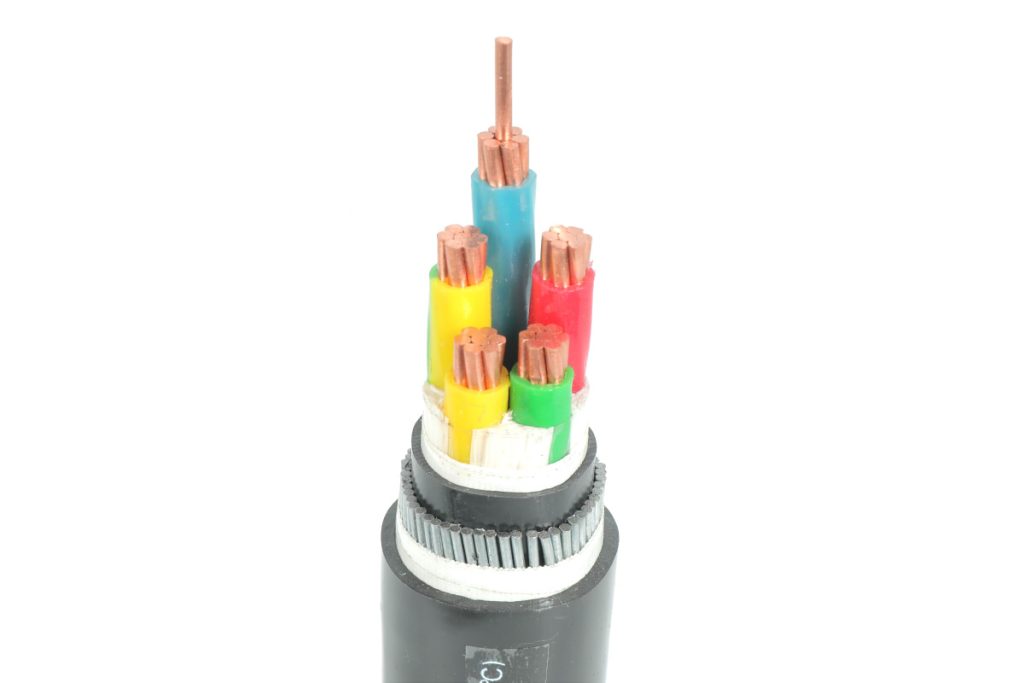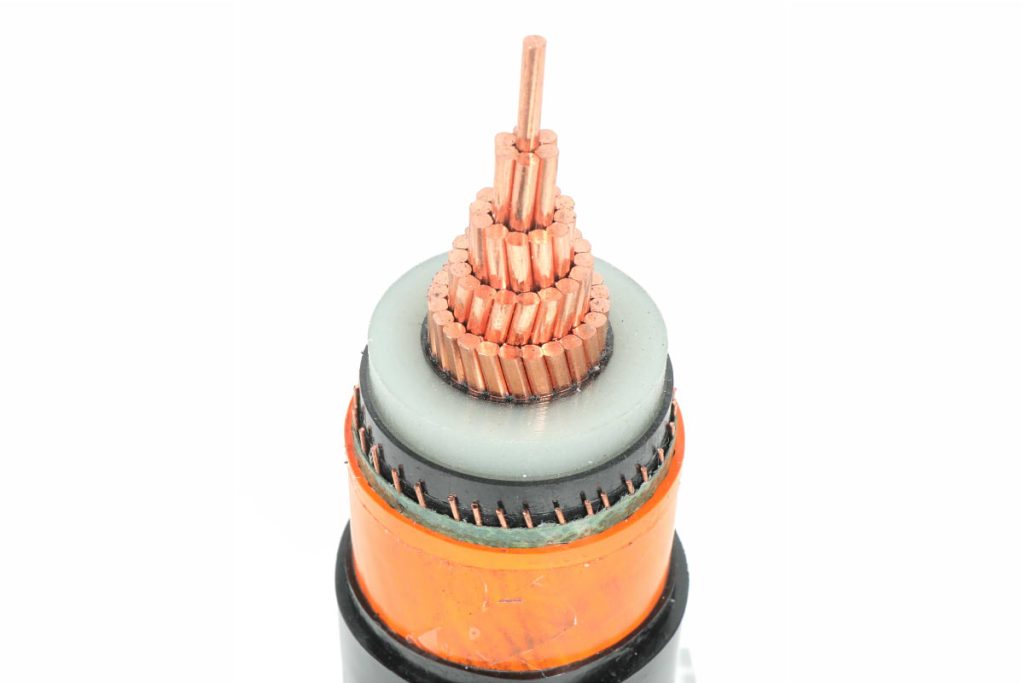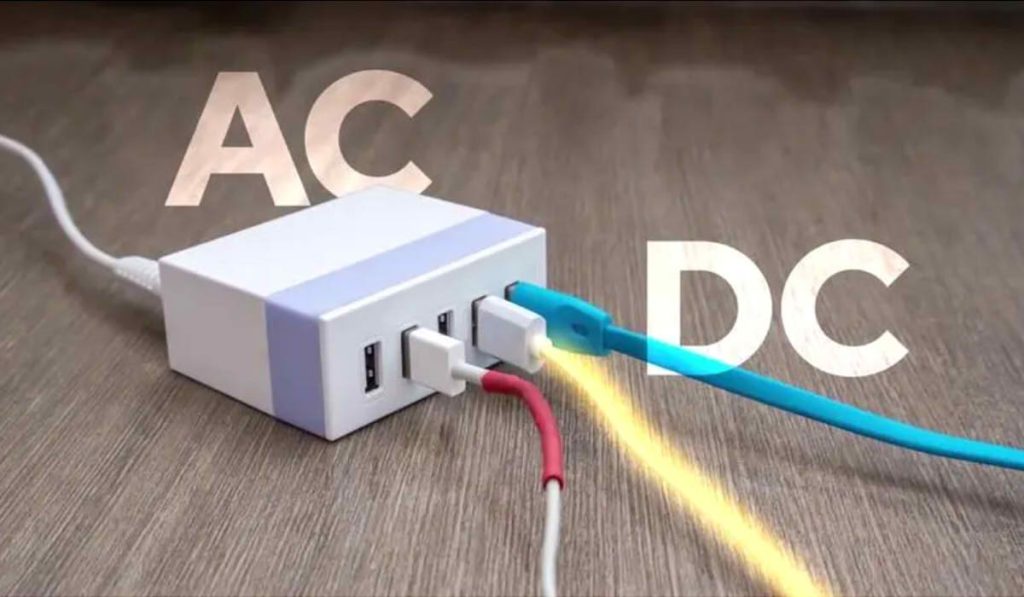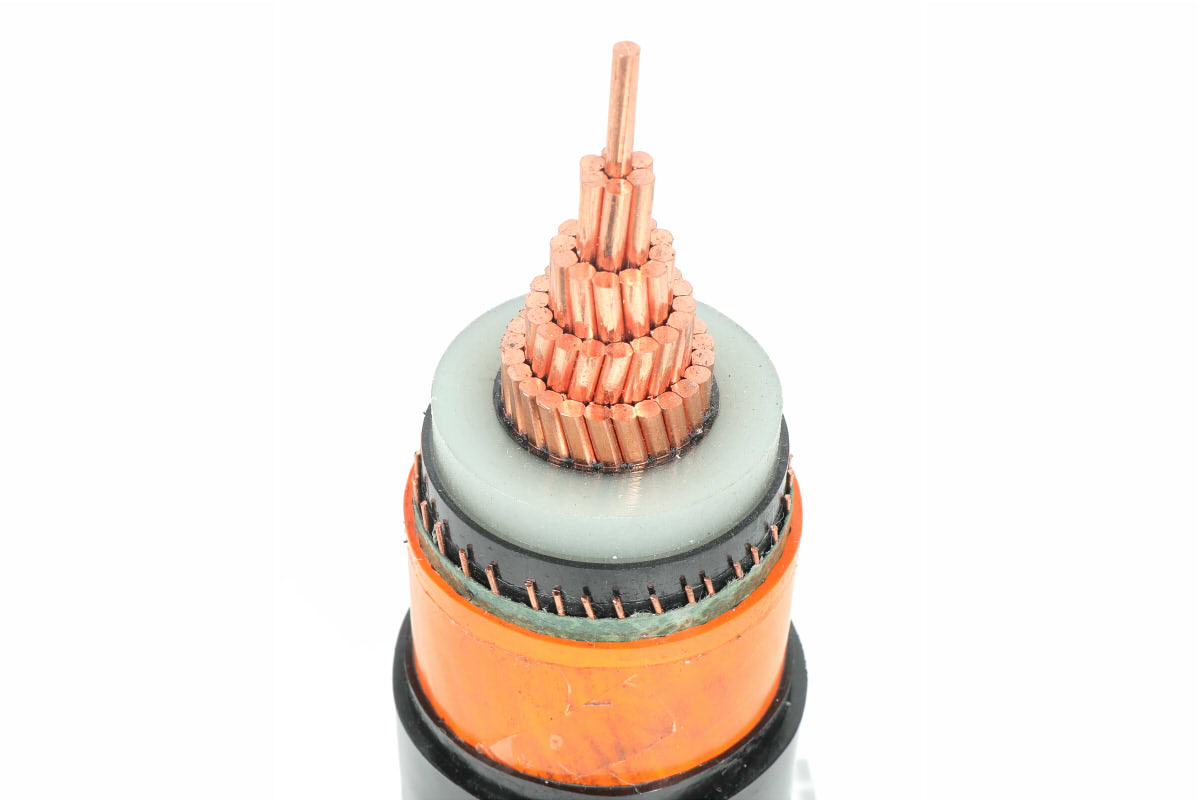In the case of DC cables and AC cables, the easiest way to tell them apart is by their application. DC cables are power cables used in DC transmission and distribution systems (direct current). AC wires, for his part, are used for AC (alternating current) feeding systems.
The structure of DC cable is basically the same as that of AC cable except that the electrical performance characteristics are different from those of AC..
Main Differences between DC Cables and AC Cables

1.The systems in which both are used are different. DC cables are used in rectified DC transmission systems.. While, AC cables are often used in industrial frequency electrical systems (normally 50 Hz).
2.Compared to AC cord, power loss during DC cable transmission is small. The power loss of the DC cable is mainly the DC resistance loss of the conductor.. And the insulation loss is small (its magnitude depends on current fluctuations after rectification).
While, the AC resistance of the low voltage AC cable is slightly greater than the DC resistance. In the case of high voltage cables, the difference is even more pronounced.
This is mainly due to the proximity effect and the film effect, where insulation resistance losses account for a large proportion. It is mainly impedance generated by capacitance and inductance.
3.Not requiring conversion, DC cables have high transmission efficiency and low line losses.
4.It is easy to adjust the current and change the direction of power transmission in DC systems..
5.Although the price of the converter equipment is higher than that of the transformer, the cost of using the DC cable line is much lower than that of the AC cable. DC cables have a simple construction of positive and negative poles.. AC cables are usually three-phase, four- or five-wire systems.. Your isolation safety requirements are high, its structure is complex and the cost of the cable is more than three times higher than that of a DC cable.
6.DC cable is safe to use.

1) The inherent characteristics of direct current transmission make it very difficult to generate eddy and leakage currents.. As a result, It also does not interfere with electric fields generated by other power cables.
2) The direct current cable has a greater capacity of interception and protection against cuts than an alternating current cable of the same construction.
3) If an electric field of the same voltage is applied to an insulator, a direct current field is much safer than an alternating current field.
7.DC cables are easy to install and maintain and cost less than AC cables.
Can AC and DC Circuits Share the Same Cable??
DC and AC circuits are separate systems. The DC circuit is an isolated system., while the AC circuit is a grounded system. Therefore, the two cannot share a common wire.
If a common wire is used, there may be a short circuit or mutual interference between the two, in addition to reducing the insulation resistance of the DC circuit.

Insulation Requirements for DC and AC Cables of the Same Voltage
When an electric field of AC and DC of the same voltage is applied to the insulation, the electric field of the DC cable is much smaller than the electric field of AC. The AC electric field is approximately 2,4 times greater than that of DC.
The structure of the two electric fields differs considerably. When an AC wire is energized, the maximum electric field is concentrated near the conductors. When the DC cables receive voltage, the maximum electric field is concentrated in the surface layer of the insulation, which is safer.
Mutual Conversion Ratio Between AC and DC Voltages
There are many different interpretations of the mutual conversion relationship between AC and DC voltages.. Our company is unified according to the calculation of GB12528.1, namely, the rated voltage of the DC cable is 1,5 times the phase voltage of the AC cable.
ZMS 1500V DC cables are designed for 3000V DC and have more secure electrical insulation.. we also manufacture HVDC submarine cables for long distance transmission.

